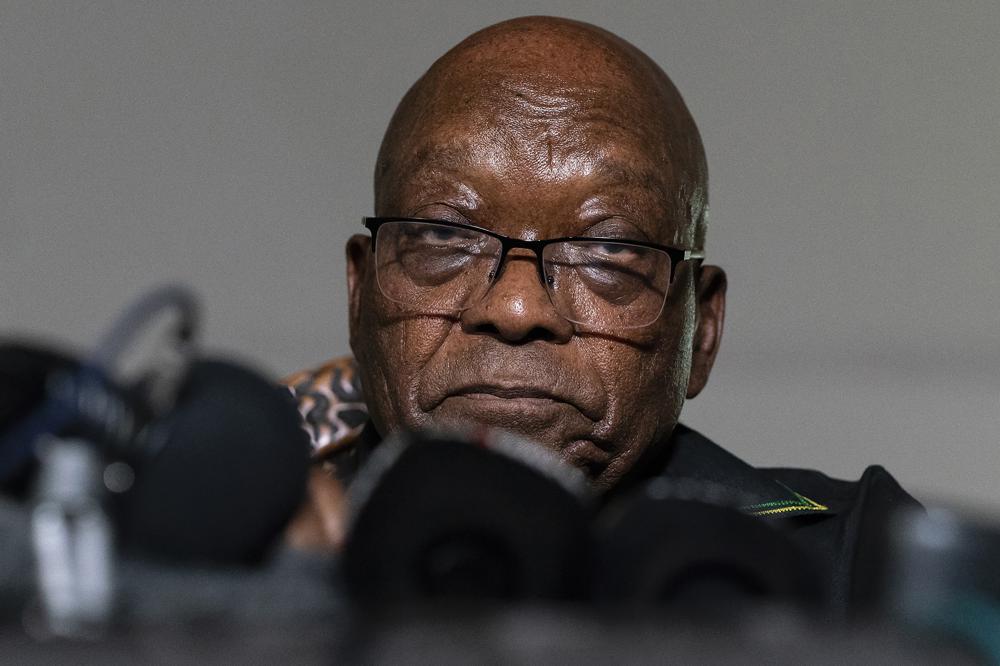

A South African court has rejected former South African President Jacob Zuma’s request to postpone his current jail term.
Zuma, who started his 15-month jail sentence Thursday, will remain behind bars after his application for his prison term be delayed was dismissed by the Pietermaritzburg High Court on Friday.
Zuma has one more legal bid to be released which will be heard by the Constitutional Court, the country’s apex court, on Monday.
He is currently imprisoned in the Estcourt Correctional Center for failing to obey a court order to testify at a judicial commission that is investigating allegations of corruption during his term as South Africa’s president from 2009 to 2018.
Some of Zuma’s supporters in KwaZulu-Natal, his home province, protested his imprisonment on Friday by blocking roads with burning tires and other obstacles. Police cleared the roads in some areas.
Zuma, 79, surrendered to authorities shortly before a midnight Wednesday deadline and was taken to Estcourt prison, about 200 kilometers (124 miles) from his rural home in Nkandla.
Zuma will be eligible for parole after serving a quarter of his sentence, unless his appeal before the Constitutional Court succeeds, according to Justice Minister Ronald Lamola.
Zuma will be in quarantine for 14 days as part of the facility’s COVID-19 precautions. He was put in the Estcourt’s hospital section for assessment and will be treated like any other inmate, Lamola said Thursday.
Zuma was convicted of contempt of court for defying a court order for him to appear before a commission of inquiry. The commission has heard damning testimony from former Cabinet ministers and top executives of state-owned corporations that Zuma allowed members of the wealthy Gupta family to influence his Cabinet appointments and the awarding of lucrative state contracts.
In a separate matter, Zuma is standing trial on charges of corruption related to a 1999 arms deal, where he allegedly received bribes from French arms manufacturer Thales. His financial adviser has already been convicted and imprisoned in that case.
While human rights groups in South Africa welcomed Zuma’s imprisonment, many people in KwaZulu-Natal, the center of support for the former president, said they were not happy about it.
“It does not sit well with me because, first of all, he is an elderly person, so for him to be incarcerated is not good for him,” said Philiswa Zondi in Pietermaritzburg. “Perhaps it would have been better for him to be incarcerated at home than to be in a cell.”
Another Pietermaritzburg resident, Ntuthuko Mdletshe, said she felt Zuma had been treated unfairly because South Africa has many other corrupt politicians who have not been arrested.
“I feel so bad for Jacob Zuma,” said Mdletshe. “I feel bad because every political party has its own corruption, even the previous government had its own corruption.”